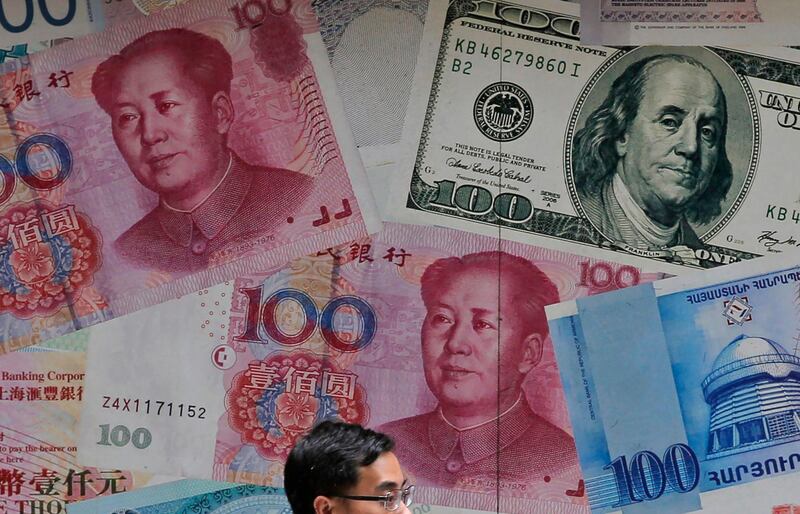The Trump administration on Monday designated China a “currency manipulator”, after the country’s central bank allowed its currency to weaken amid the trade dispute that has rocked global markets.
The move marks the first time the US has designated China as a currency manipulator since 1994, under Democratic President Bill Clinton.
On Monday, US Treasury Secretary Steven Mnuchin accused Beijing of manipulating its currency “to gain unfair competitive advantage in international trade”.
The US will now ask the International Monetary Fund to “eliminate the unfair competitive advantage created by China’s latest actions”, Mr Mnuchin said.
Hours earlier, US President Donald Trump took to Twitter to accuse Beijing of depreciating its currency.
“China dropped the price of their currency to an almost a historic low," Mr Trump tweeted. "It’s called 'currency manipulation'.
"Are you listening, Federal Reserve? This is a major violation which will greatly weaken China over time.
“Based on the historic currency manipulation by China, it is now even more obvious to everyone that Americans are not paying for the tariffs. They are being paid for compliments of China, and the US is taking in tens of billions of dollars.
"China has always used currency manipulation to steal our businesses and factories, hurt our jobs, depress our workers’ wages and harm our farmers’ prices. Not any more.”
The People's Bank of China allowed its currency to fall below seven yuan to the American dollar on Monday for the first time in a decade.
Seven yuan is considered to be a key threshold. The move was seen as a retaliation to Mr Trump’s threat to slap a 10 per cent tariff on $300 billion (Dh1.1 trillion) of Chinese goods.
China’s central bank said the depreciation was “due to the effects of unilateralist and trade-protectionist measures and the expectations for tariffs against China”.
The country later said it would stop buying US agricultural products and would not rule out important tariffs on newly purchase agricultural products.
Markets did not react warmly to the news. S&P 500 futures were down 1.6 per cent after the US Treasury said China had “taken concrete steps to devalue its currency”.
US stocks saw their largest one-day drop this year on Monday after the renminbi weakened, with the S&P 500 closing down 3 per cent and bond yields slumping.
The Dow Jones index lost nearly 3 per cent on Monday and similar falls occurred in Asian and European stock markets.







